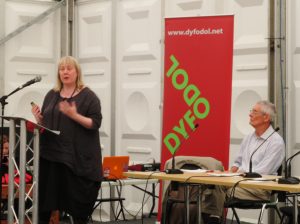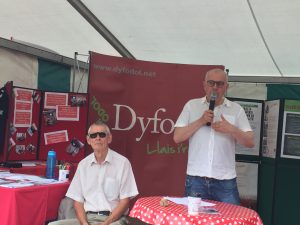Following the Westminster Government’s decision to suspend Parliament in order to force a no-deal Brexit, Dyfodol i’r Iaith has declared that such a development would be disastrous for rural Wales. Since these are the very areas which continue to support the Welsh langugage as the natural, default medium, it would also be iniquitous to the Welsh language.
Heini Gruffudd, Cadeirydd Dyfodol’s Chair said:
“There is now a clear consensus that leaving the European Union without a deal would be a disaster for the rural Welsh economy. These areas, of course, contain the very communities which continue to support Welsh as a living language, and if the economy of these areas is decimated, then the language loses its backbone.
It should also be noted that the European Union supports minority languages and promotes economic links for rural areas.
Acknowledging the essential relationship between the economy, language and culture, we would call on the Welsh Government and all who would wish to see the Welsh language flourish to make it plain to the Government in Westminster that we are not willing to accept such unprincipled and destructive conduct.”






